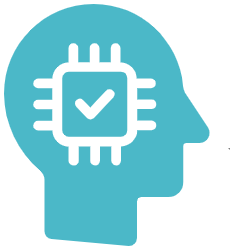Generative AI, a subset of artificial intelligence focused on generating new content, has the potential to significantly impact the medical insurance industry. This technology can revolutionize how data is processed, decisions are made, and customer interactions are handled. Here’s a detailed exploration of the various ways generative AI could benefit the medical insurance sector.
Enhancing Customer Experience
- Personalized Policy Recommendations: Generative AI can analyze an individual’s medical history, lifestyle, and risk factors to generate personalized insurance policy recommendations. This ensures that customers receive plans that are tailored to their specific needs, improving satisfaction and coverage effectiveness.
- Automated Customer Support: Through advanced chatbots and virtual assistants, generative AI can provide instant, 24/7 support to policyholders. These AI systems can handle a wide range of queries, from policy details and coverage questions to claims processing and healthcare provider recommendations, improving customer service and reducing wait times.
Streamlining Claims Processing
- Automated Claims Adjudication: Generative AI can automate the evaluation and processing of claims by interpreting medical records, invoices, and policy terms. This reduces the time and labor involved in manual reviews, speeds up claim resolutions, and decreases the potential for human error.
- Fraud Detection and Prevention: By analyzing patterns in claims data, generative AI can identify anomalies that may indicate fraudulent activity. This proactive approach helps in mitigating losses and ensuring that resources are used for genuine claims.
Improving Decision Making
- Risk Assessment and Pricing: Generative AI can process vast datasets to identify risk factors and trends more accurately. This information can be used to refine risk models and pricing strategies, ensuring that premiums are more closely aligned with the actual risk.
- Policy Customization: Insurers can use generative AI to develop more flexible and customizable insurance products. By understanding customer preferences and risk profiles in depth, insurers can offer modular policies that customers can tailor to their exact needs.
Operational Efficiency
- Process Automation: Many routine tasks, from document processing to compliance checks, can be automated using generative AI. This not only speeds up operations but also allows human employees to focus on more complex, value-added activities.
- Predictive Analytics: Generative AI can forecast future trends in healthcare costs, emerging health risks, and customer behavior. Insurers can use these insights to adjust their strategies, manage risks more effectively, and optimize their product offerings.
Challenges and Considerations
While the potential benefits are significant, the implementation of generative AI in medical insurance also presents challenges. These include ensuring data privacy and security, maintaining transparency in AI-driven decisions, and addressing regulatory and ethical considerations. Moreover, the success of AI applications depends on the quality and quantity of the data available, as well as the continuous monitoring and updating of AI models to reflect new data and outcomes.
Conclusion
Generative AI has the potential to transform the medical insurance industry by enhancing customer experiences, streamlining operations, and improving decision-making processes. However, to fully realize these benefits, insurers must navigate the technical, ethical, and regulatory challenges associated with deploying AI technologies. With thoughtful implementation, generative AI can lead to more efficient, responsive, and personalized medical insurance services.

